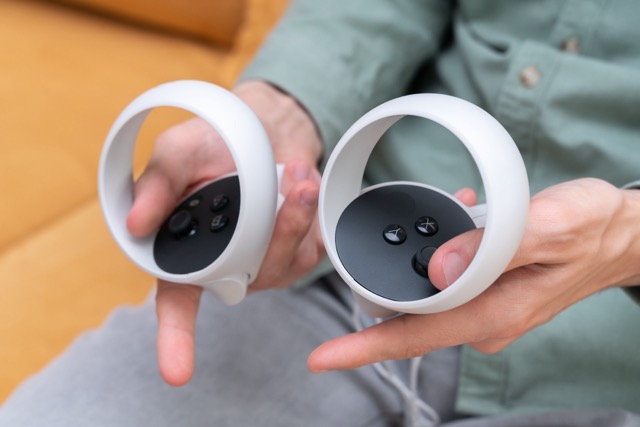The intersection of the Internet of Things (IoT) and environmental sustainability is becoming increasingly significant as the world grapples with climate change and resource depletion. IoT technology, which connects devices and systems through the internet, has the potential to transform how we manage our resources and interact with our environment. This article explores various aspects of this relationship, highlighting how IoT devices can enhance efficiency, promote sustainable practices in agriculture and homes, and drive innovations that contribute to a greener future.
How IoT Devices Enhance Resource Efficiency and Conservation
IoT devices are revolutionizing resource management by offering real-time data and analytics that help users make informed decisions. For example, smart meters in homes and businesses monitor energy consumption, allowing users to identify patterns and reduce waste. By tracking usage trends, consumers can adjust their habits, ultimately leading to lower energy bills and a reduced carbon footprint. This real-time feedback loop encourages more conscious consumption, fostering a culture of sustainability.
In addition to energy, IoT technology can optimize water usage, a critical resource facing increasing scarcity. Smart irrigation systems equipped with soil moisture sensors ensure that water is used efficiently, applying it only when necessary. This not only conserves water but also enhances crop yields in agricultural settings. Further, smart appliances can communicate with each other, automatically adjusting their operations based on available resources, further minimizing waste and promoting efficiency.
Finally, the integration of IoT in waste management plays a crucial role in conservation efforts. Smart bins can monitor waste levels and optimize collection routes, reducing fuel consumption and emissions associated with waste transport. By making waste management more efficient, cities can divert more materials from landfills and promote recycling, contributing to a more sustainable urban environment.
Smart Agriculture: IoT Solutions for Sustainable Farming
The agricultural sector is experiencing a technological revolution, and IoT is at the forefront of this transformation. Smart farming solutions are enabling farmers to monitor soil conditions, weather patterns, and crop health in real time. For instance, sensors can measure soil moisture and nutrient levels, allowing farmers to apply fertilizers and water precisely when needed. This not only improves crop yields but also minimizes the environmental impact associated with over-fertilization and excessive irrigation.
Moreover, drones equipped with IoT technology can survey large agricultural areas, providing detailed insights into crop health and growth patterns. This information enables farmers to make data-driven decisions that optimize resource usage and improve sustainability. By identifying problem areas early, farmers can take targeted action, reducing waste and maximizing productivity.
Additionally, IoT solutions facilitate better supply chain management in agriculture. By connecting farms with consumers and retailers, farmers can track produce from field to table, minimizing food waste. This transparency helps ensure that food is consumed at its peak freshness, contributing to overall sustainability in the food system. The adoption of IoT in agriculture not only enhances productivity but also aligns with the principles of sustainable farming.
Reducing Carbon Footprint with IoT-Enabled Smart Homes
Smart homes equipped with IoT devices offer homeowners practical ways to reduce their carbon footprint and promote sustainability. Smart thermostats, for example, learn user behavior and adjust heating and cooling settings accordingly. This optimization reduces energy consumption while maintaining comfort, leading to lower utility bills and a significant reduction in greenhouse gas emissions.
Lighting is another area where IoT technology shines. Smart lighting systems can be programmed to turn off when a room is unoccupied or adjust brightness based on natural light levels. This ensures that energy is not wasted on unnecessary illumination, ultimately contributing to a more sustainable living environment. Additionally, these systems can be integrated with other smart devices, creating a seamless, energy-efficient ecosystem.
Homeowners can also monitor their energy usage through IoT applications, providing insights into where energy is consumed most. This data helps inform lifestyle changes that promote sustainability. By making small adjustments, such as unplugging devices when not in use or replacing traditional appliances with energy-efficient models, residents can significantly lower their household’s carbon emissions.
The Future of IoT: Innovations Driving Environmental Change
Looking ahead, the future of IoT in relation to environmental sustainability holds immense promise. Emerging technologies such as artificial intelligence and machine learning are being integrated with IoT systems to create even more advanced solutions. For instance, predictive analytics can forecast energy demand and optimize supply, allowing for a more balanced and sustainable energy grid.
Furthermore, advancements in renewable energy technologies, such as solar and wind, are increasingly being paired with IoT systems. Smart energy management solutions can monitor energy production and consumption in real time, enabling users to capitalize on renewable energy sources more effectively. This synergy is crucial for reducing reliance on fossil fuels and fostering a sustainable energy future.
Finally, as global awareness of environmental issues grows, so does the potential for IoT to play a central role in promoting sustainability. Businesses and consumers alike are increasingly prioritizing eco-friendly practices. The ongoing development of IoT technologies will continue to drive innovative solutions that not only enhance efficiency but also contribute to a healthier planet.
The relationship between IoT and environmental sustainability is a powerful testament to the potential of technology to address some of the most pressing challenges facing our planet. By enhancing resource efficiency, promoting sustainable agriculture, and reducing carbon footprints in our homes, IoT devices are paving the way for a more sustainable future. As we look ahead, the innovations driven by IoT will undoubtedly continue to shape our relationship with the environment, making it essential for individuals and businesses alike to embrace these technologies for a greener tomorrow.










